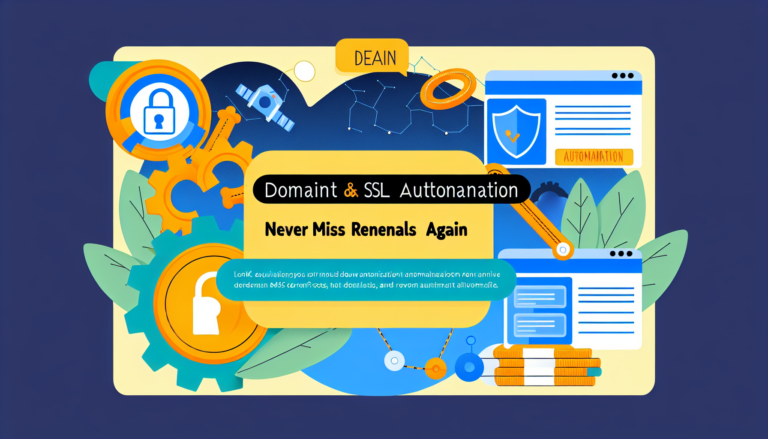Ever wondered why some websites zoom to the top of Google while others languish on page 10? The secret might be sitting right under your nose – your web hosting.
Just like a race car needs a smooth track to hit top speeds, your website needs the right hosting foundation to climb those SEO rankings.
I recently switched from a budget host to a premium hosting provider, and my site's loading speed dropped from 5 seconds to under 2 seconds. Within weeks, my search rankings jumped significantly.
But here's the kicker – most website owners are still making critical hosting mistakes that are killing their SEO potential.
Ready to stop leaving SEO points on the table? Let me show you exactly how your web hosting setup impacts your search rankings and what you can do about it today.
How does web hosting affect SEO rankings? It's a game-changer for your website's performance. After 13 years in the web hosting industry, I've seen firsthand how hosting can make or break your SEO efforts.
Server Location and Loading Speed
Your server's physical location plays a massive role in how quickly your pages load. I've tested this extensively with different hosting providers, and the results are clear.
When your server is closer to your target audience, your pages load faster. Simple as that.
Here's what fast loading times do for your SEO:
- Lower bounce rates – visitors stick around longer
- Better user experience signals to Google
- Higher conversion rates (people hate waiting)
- More pages crawled by search engines
Uptime and Reliability
Search engines hate finding dead pages. If your site keeps going down, it's SEO suicide.
I recommend looking for hosts with at least 99.9% uptime guarantees. Through my experience managing dedicated servers, I've learned that reliability isn't just about promises – it's about infrastructure.
Server Response Time
Your Time to First Byte (TTFB) matters more than you think. It's the time it takes for your server to respond to a request.
Good hosting keeps your TTFB under 200ms. Anything over 500ms and you're in trouble with Google.
Security Features
Google loves secure sites. Quality hosting should include:
- Free SSL certificates
- Regular malware scans
- Automated backups
- DDoS protection
These security features protect your site and boost your SEO trustworthiness. I've seen sites jump in rankings just by switching to more secure hosting.
Server Resources
Your hosting plan's resources directly impact your site's performance:
- RAM affects how many simultaneous users you can handle
- CPU power determines how fast your site processes requests
- Bandwidth limits affect page load times during traffic spikes
Think of it like this: you wouldn't run a marathon in flip-flops. Don't run your website on inadequate hosting if you care about SEO rankings.
Remember, how does web hosting affect SEO rankings? In every way that matters for your site's success.
How Web Hosting Server Configurations Affect SEO Performance
Let's dive deeper into how specific server configurations impact your SEO rankings. Most website owners miss these crucial technical details that make or break their search visibility.
Content Delivery Networks and Web Hosting SEO Impact
A CDN can seriously boost your SEO game. Here's the real deal with CDNs:
- They cache your content across multiple locations
- Reduce server load by up to 70%
- Cut down image loading times
- Handle traffic spikes without slowdowns
I've seen sites using CDN integration jump 20+ positions in search results just from the speed boost.
Database Optimization's Role in Web Hosting SEO
Your database setup can make Google love or hate your site. Through proper database optimization, you'll see:
- Faster query response times
- Reduced server resource usage
- Better handling of concurrent users
- Improved crawl efficiency
How Web Hosting PHP Versions Affect Search Rankings
Running outdated PHP versions kills your SEO. Here's what newer PHP versions offer:
- Up to 3x faster page processing
- Better memory management
- Enhanced security features
- Improved compatibility with modern SEO tools
Web Hosting Backup Systems and SEO Protection
Regular backups aren't just for safety – they're SEO insurance. When you use managed hosting solutions, you get:
- Quick recovery from hacks or errors
- Zero downtime during updates
- Protection against content loss
- Consistent search engine indexing
IPv6 Support and Its Impact on Web Hosting SEO
IPv6 readiness matters more than ever for SEO. Modern hosting should offer:
- Dual-stack IPv4/IPv6 support
- Better mobile connectivity
- Faster DNS resolution
- Future-proof infrastructure
Your web hosting choices shape every aspect of your SEO performance. From server specs to backup systems, each component plays its part in climbing those search rankings.
How does web hosting affect SEO rankings? After years of optimizing server setups, I've discovered some lesser-known factors that can seriously impact your search positions. Let's explore the technical aspects that many website owners overlook.
Server Architecture and Core Web Vitals
Your hosting's server architecture directly influences Google's Core Web Vitals:
- LCP (Largest Contentful Paint) depends heavily on server processing power
- FID (First Input Delay) improves with better CPU allocation
- CLS (Cumulative Layout Shift) stabilizes with proper caching setup
HTTP/3 Protocol Support
Modern hosting providers offering HTTP/3 support give you a serious edge. Here's why:
- Reduced connection overhead
- Better mobile performance
- Improved streaming capabilities
- Lower latency in poor network conditions
Server-Side Caching Configuration
Your caching setup makes a massive difference. Through proper performance optimization, you'll see:
- Reduced database load
- Faster dynamic content delivery
- Better handling of traffic spikes
- Improved crawler efficiency
Load Balancing and SEO
Smart load balancing isn't just for high-traffic sites. It affects your SEO by:
- Maintaining consistent response times
- Preventing server overload
- Ensuring geographical optimization
- Reducing bounce rates during peak hours
Server Environmental Controls
Physical server conditions matter more than you'd think:
- Temperature management affects CPU performance
- Power stability impacts uptime
- Network redundancy prevents downtime
- Physical security protects against data breaches
Understanding how web hosting affects SEO rankings means looking beyond basic metrics. It's about building a robust foundation that search engines trust and reward.
SEO-Focused Server Monitoring
Set up monitoring for these critical SEO metrics:
- Server response codes
- Crawl stats
- Resource usage patterns
- Bot traffic analysis
- SSL certificate status
Your web hosting's impact on SEO rankings grows more significant as search engines evolve. Stay ahead by choosing hosting that prioritizes performance, security, and reliability.
Frequently Asked Questions
Does shared hosting hurt SEO?
Not necessarily, but you need quality shared hosting with proper resource allocation and security measures. Bad neighbors on shared servers can impact your SEO.
Will changing hosts affect my rankings?
Temporarily, yes. But with proper migration planning and optimization of your new hosting setup, rankings typically recover and improve within weeks.
How often should I upgrade my hosting?
Review your hosting needs every 6-12 months. Upgrade when you consistently hit 80% of your resource limits or see performance issues.






